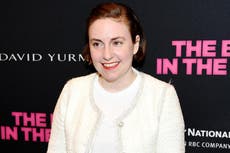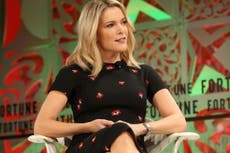Amber Rudd's racist comment is a stark reminder that today's feminism doesn't represent women of colour like me
For many black and Asian women Amber Rudd’s use of the word “coloured” is will drag up many painful memories of the racism that they have faced their whole lives

Amber Rudd’s reference to Diane Abbott as a “coloured” woman during an interview on BBC Radio 2’s Jeremy Vine Show has become the talk of the day - and rightly so. While her intentions may have been positive, her offensive wording indicates the serious lack of understanding of the experiences of a black woman in modern Britain.
"Coloured" is regarded as an offensive racial slur as it originates from a time when it was used to describe anyone who was not white and when racism was commonplace. It is reminiscent of the era of segregation and inequality in the US when black people were ordered by the police department to wait in separate rooms, use separate toilets, and sit in different areas on public transport - all labelled as "Coloured" to indicate they were for people considered less than, "other", due to their race.
Although Rudd has apologised for her “clumsy language”, in light of International Women’s Day, it’s troubling to see that a white, very senior female politician still fails to understand the experiences of black and Asian women on a day when we call for #balanceforbetter.
In a recent conversation with me regarding this issue, Liberal Democrat district councillor for South Cambridgeshire Tumi Hawkins said: “Whilst I commend Amber Rudd for speaking up for black and minority ethnic women who face racism, I find it shocking that in 2019, she used the term ‘coloured’, a derogatory slur that is a throwback to racism in the Sixties and Seventies.
“Furthermore, as former home secretary who took over from Theresa May, the architect of the ‘hostile environment’ which resulted in the Windrush scandal, it seems to symbolise the depth that non-whites are considered as foreigners. Conservatives must eliminate racism, root and branch, from their thinking.”
My mother came to Britain in 1975 from Bangladesh; we were the only family of colour on the street where we lived in Rochester. One of the main challenges my mother faced back in 1975 was “coloured integration”, as she termed it – her everyday experience of struggling to be accepted as a woman of colour in a predominantly white area.
For many black and Asian women Amber Rudd’s use of the word “coloured” is will drag up many painful memories of the racism that they have faced their whole lives. “Coloured” is not just a word to people of colour.
My mother tried to integrate into British society with quiet dignity, even when racists called her a “Paki”, a “fucking wog” and a “coloured bitch”. She was often elbowed out of line in the supermarket. The cashier would look down her nose at her and speak loudly as if she were deaf, repeating things when it was perfectly clear that she understood.
Supermarket assistants sometimes removed goods or replaced things with pork sausages from her trolley, claiming that she might not be able to afford them, and cashiers often tried to short-change her.
Knowing my mother’s long quiet struggle to be accepted for who she was so intimately from my childhood is why I reacted so strongly on hearing Amber Rudd's use of the pejorative term “coloured woman”.
Rudd’s comments are reminiscent of my mother’s experiences of facing the word “coloured” in real life every day. Its use perpetuates the normalisation of racism which is still too often the experience of women in the UK – even 50 years after my mother’s experience.
This is why intersectionality in feminism is so important. To achieve real progress in gender equality we need to acknowledge all elements of social discrimination such as class, race, sexual orientation, age, religion, creed, disability and gender do not exist separately. White women like Rudd need to examine their own privilege before they start to make statements about the experiences of those who don’t share it.
When Emma Watson wrote her feminist-themed book Our Shared Shelf, she was called out for being a “white feminist” – implying she focussed on the struggles of white women without addressing the reality of oppression faced by BAME women, something she has since acknowledged.
Lena Dunham, best known for creating the hit TV show Girls, has fallen foul to a similar lack of intersectionality, when she failed to cast a single person of colour as a main character in the first season of her “voice of a generation” TV show, when she implied a woman of colour was lying about being raped, and when she accused black footballer Odell Beckham Jr of ignoring her because she didn’t conform to traditional standards of female beauty – all things she’s since been forced to apologise for.
White feminists have long viewed their task as a struggle against men – black, brown white – without acknowledging the realities of women of colour, and how structural racism in society puts them at a disadvantage, and why the privilege of being white must be acknowledged in conversations about dismantling the patriarchal oppression all women are subject to.
Watson should be applauded for her explicit acknowledgement that she has benefited from being white and openly asking herself the question: “In what ways do I support and uphold a system that is structurally racist?”
Maybe Amber Rudd could ask herself the same thing.
Her comments are a stark reminder that even when on the same feminist side, many educated people struggle with basic vocabulary when talking about women of colour, so how can we expect them to fight for our rights alongside their own?
Feminism needs to take an intersectional stance in order to make a real difference, and we all need to acknowledge the privilege we’re afforded by our race, background, wealth and able-bodiedness if we’re to come together to make real change.
As a combined force, it is women of all backgrounds, united who will change the world – for the better.



Join our commenting forum
Join thought-provoking conversations, follow other Independent readers and see their replies